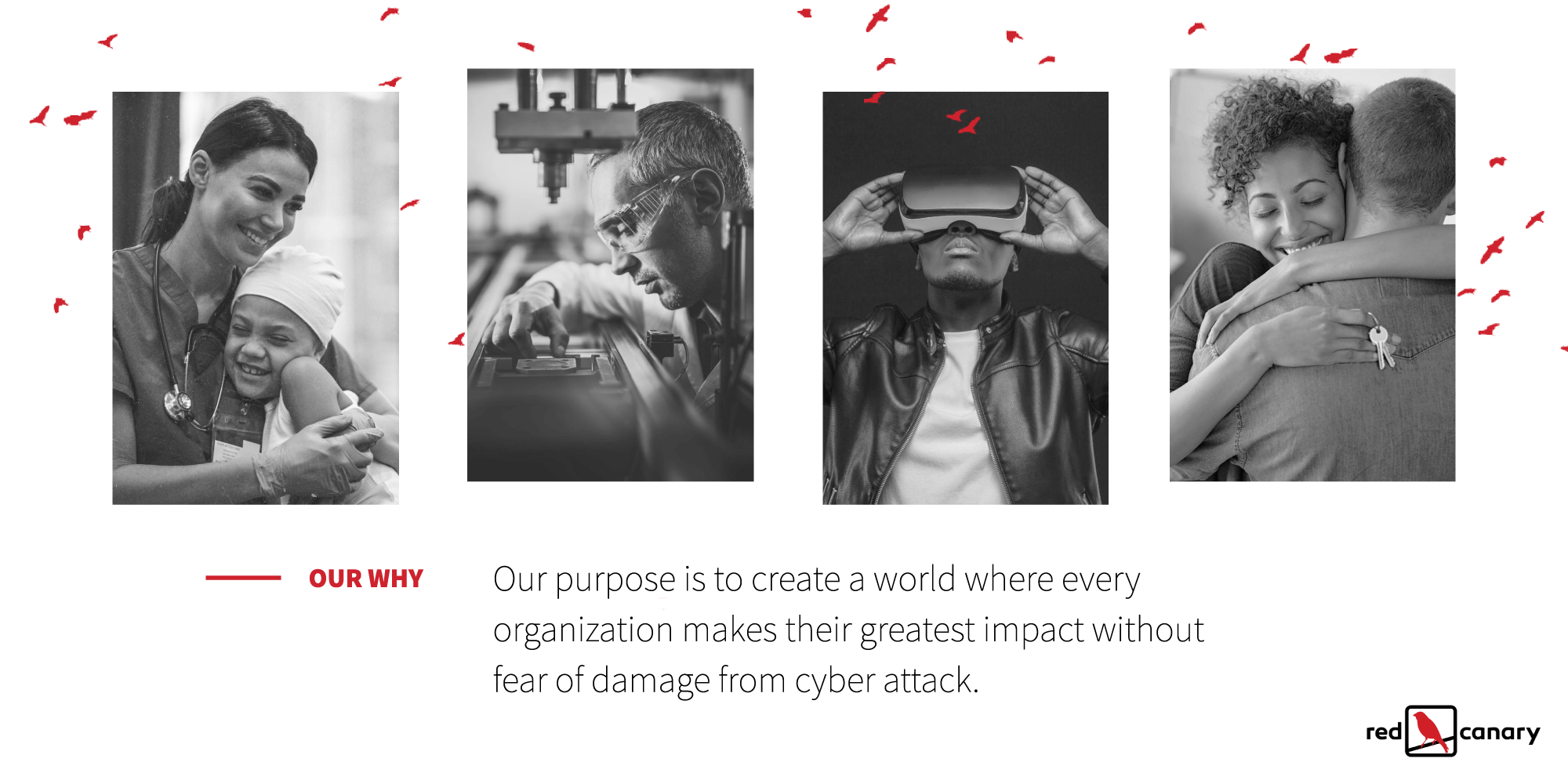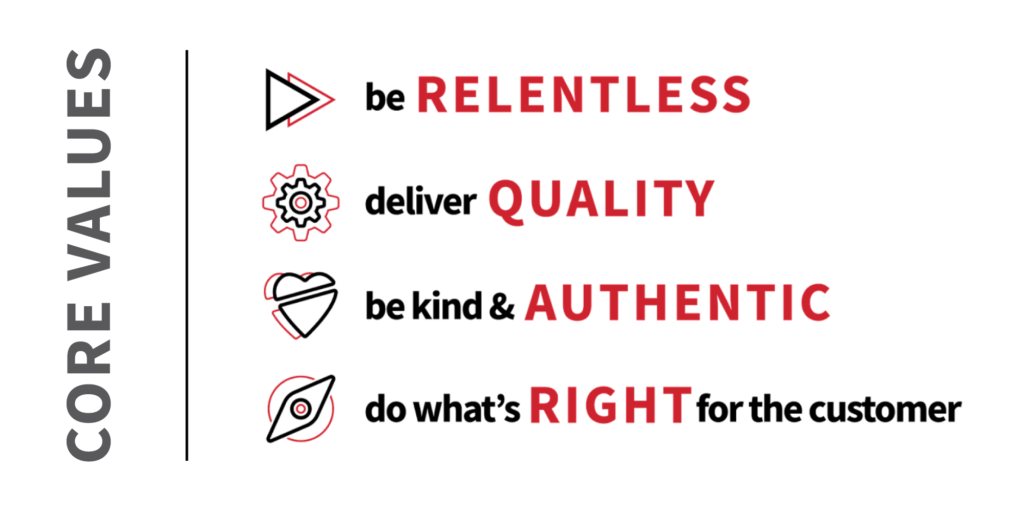We are honored and excited to have been named one of Forbes Best Startup Employers this year! Creating and nurturing a positive culture that makes a startup a destination for talented people to grow and thrive doesn’t happen by accident. It’s a combination of a clear vision, mission, and company values, plus talent management and employee development best practices.
Experience has taught me it’s not the ping pong table and kombucha keg that create your culture and make your company great. Employees don’t join a startup or high-growth company for a job. They crave something more: a movement. Your movement. They come to you engaged and ready to have an outsized impact. Understanding the human dynamic of your organization and how you need to evolve as your company grows is critical for your founders’ vision to become a reality.
In a knowledge-based society, the only real competitive advantage a company has is its people and the culture you create. Your approach will either create space for them to thrive or constrain their results and impact. Employee-centric systematic talent practices can help create stability in a high-growth environment. Your employees will understand how their success is measured, embrace continuous learning, and seize real growth opportunities and career advancement within your organization.
The pandemic has made growing a highly engaged team and nurturing a positive culture all the more challenging. Outlined below are approaches that have harnessed Red Canary’s unique, authentic culture and helped our Canaries (aka Red Canary team members) to fly.
Spell out and share your mission
A mission brings your employees together around a common goal and gets everyone rowing in the same direction. However, defining your mission isn’t enough. You need to share it—with your teams, customers and future customers, future employees, and the broader security community. At Red Canary we introduce our mission in the interview process. We reinforce it during new Canary onboarding. We celebrate it as the kick-off to company meetings. And we lead with our mission in our customer-facing presentations and our website.
Live your values
Defining and living your values will create stability through the different stages of growth and give confidence to early employees that they can adapt. Align your compensation strategy, what you hire for—and fire for—with your values. Ensure employees see the company values in action in how their leaders give them feedback, coach them, and invest in the connection they create and nurture. We underscore our values in many of the same ways we do our mission, and even have a weekly Slack bot to call-out these company north stars. We also hear our values echoed in customer feedback as they describe how their Red Canary partnership is different from that of other vendors.
Build your business informed by your beliefs
Your beliefs and culture help shape your business approach. At Red Canary, what we believe leads to employee satisfaction. Our mission and values translate into decentralized decision making, high autonomy, and comfort with ambiguity and conflict, which leads to innovation.
What makes a startup different is the level of autonomy employees have. There is more room to leverage past experience to make decisions and make a difference. However, a common startup challenge is early-stage employees becoming too committed to the early days and perceived freedom. You can integrate autonomy and decentralized decision making into your business practices and refine the scope and impact as your company grows and moves from generalists to specialists.
Define success through behavioral competencies
Defining success through behavioral competencies helps employees navigate their career journey, redefine their identity and contributions as they progress, and adapt and grow with the company instead of becoming stagnant. This is particularly powerful when implemented within a framework of career stages and transitions, as it buoys your early employees and helps all team members navigate organic growth with certainty.
When you promote best practices like behavioral competencies, you start to see that how you perform matters just as much as what you do. In order to navigate growth you need to do more than post values on the wall; you need to operationalize them. Integrate them into talent systems and decision making, talk about them often, and demonstrate them at every level in the company. Integrate them into hiring practices, promotion criteria, etc. It has to be a key part of what you reward and celebrate.
At Red Canary we use the Predictive Index. We conduct both team and individual analysis sessions and have regular Predictive Index “office hours” drop-in sessions for employees to ensure that they understand what their and their colleagues’ profiles mean and how to apply that knowledge for growth and collaboration.
Embrace an employee-centric view of development and contribution
At some companies the only way to advance is upwards. Not everyone is fit for people management. The goal is to leverage everyone’s strengths and purpose. At Red Canary we have created dual career tracks so there is a path as an individual contributor all the way up to Technical Fellow, which is a VP-level individual contributor. We actually try to talk people out of leadership—it needs to be a calling and built on a talent for amplifying other people’s success through honest, direct and meaningful feedback.
Foster and measure engagement
At Red Canary we measure employee engagement twice a year. At the beginning of our fiscal year we measure engagement and set initiatives to address areas where we can improve our engagement.
Measuring engagement is a proactive and important practice, but only impactful when you share results and are transparent with your employees about where you are and what you will do to get to where you want to be. Engagement is the job of every employee, but as an employer you can use this information to gauge the perceived effectiveness of your leaders and talent systems (feedback, development, setting expectations) to make specific and actionable changes to the way you are developing and leading your employees.
Also, by measuring engagement, you can understand if disengagement is a problem in your organization and take action to address it.
Trust and create room for connection
Trust and connection are critical in remote work cultures. Red Canary has always been a remote-first culture, even before the pandemic. Today 40 percent of our employees live in Colorado where we are headquartered, and 60 percent of our employees work remotely.
Underneath this is a powerful belief and foundation of trust. When you extend trust that the work will get done without you having to micromanage or manipulate employees , they often exceed your expectations and innovate outside of the box other companies might keep them in. Many employers hire people and then prescribe results instead of setting a framework and goals and unlocking the potential of the talent they hired to define the how and achieve more than leadership could have prescribed.
At Red Canary we are deliberate about creating opportunities for connection. We do quarterly all-company meetings that our employees can attend remotely or in person. Each quarter we review our vision, mission, values, objectives, and key results to keep everyone aligned on what is most important. This is a key to decentralized decision making and driving alignment for remote workers.
See for yourself
Given start-ups are dynamic, high-growth environments, there can be a tendency for other priorities to trump employee-related initiatives. Your people and your culture can be your superpower. Red Canary is a company where we have embraced this approach and deliberately invested in talent management and employee development best practices. And the results speak for themselves. While high-tech is a notoriously high-turnover industry, Red Canary had just 17 percent attrition last year, versus an average U.S. attrition rate of 57.3 percent. It works. It really works.

